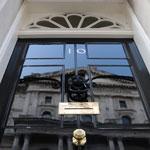latest Reviews and articles
CHAMPAGNE DEUTZ – THE QUIET PLAYER ON THE WORLD STAGE - Within the UK Deutz Champagne is considered one of Champagnes...
Where to celebrate Bastille Day in London - Many restaurants and bars in London have chosen to embrace...
How do you chose a dentist in London? - There are so many dentists in London. How do I choose?
The Brioche de Noel Pasquier arrives in London at last - In this festive season, there will be many food options to enjoy...
MAGAZINE
-
 Children
Children
-
 Culture
Culture
-
 Decoration
Decoration
-
 Economy/Politics
Economy/Politics
-
 Education
Education
-
 Fashion
Fashion
-
 Food / Wine
Food / Wine
-
 Health
Health
-
 Holidays
Holidays
-
 Jobs
Jobs
-
 Law
Law
-
 Life and Style
Life and Style
-
 Property
Property
-
 Sport
Sport
Device converter
Weather
Classified ads
- House to Rent - Barn Hill - Near Lycee
- Tax Return MN | Prudent Accountants
- 3 bedroom flat to rent
- Football agent looking for talented players
Recently added
articles > Economy/Politics events

A return to stability?
For almost a month, there has been massive uncertainty in the economy and politics of the UK. A vote to Leave the European Union has jeopardised the unity of the Kingdom, unseated a Prime Minister and torn the fabric that just about kept the Labour party together.
But order seems to have returned in the figure of Theresa May. Whereas many feared the internal divisions of the Conservatives after the vote, the new Prime Minister has calmed the situation. The Remain / Leave divide inside the Tory party has been bridged by a pro-Remain leader who insists that “Brexit means Brexit”.
Indeed, it was Mrs May’s ability to unite Conservatives that opened the door to 10 Downing Street: her final opponent in the leadership race, Andrea Leadsom, dropped out after receiving the backing of only 84 MPs to May’s 199.
Since then May has almost entirely reshuffled the Cabinet. Some familiar heads, such as Defence Secretary Michael Fallon, remain but many others have rolled - including Michael Gove and George Osborne.
With party problems put aside - the EU had long been the Tories’ topic of disagreement but the debate has now been settled - the new PM has sought to mend the ties that have been the most weakened by the Brexit vote.
Her first trip was to Scotland, Home of the Brave but also of the Disenfranchised. Last month Scottish voters backed Remain by an outstanding 24 percentage point majority, and the SNP has played up the prospects of holding a second independence referendum after claiming the nation was being pulled out of the EU against its will.
There, Mrs May met Scottish First Minister Nicola Sturgeon. Whilst the pair had diverging views on a second “Indyref”, the meeting was described as “positive” by the PM, who asserted that she wanted Scotland to be “fully engaged” in the Brexit process.
Next on Mrs May’s list of travels was Berlin, home to another stateswoman, German Chancellor Angela Merkel. During a joint press conference, the PM explained that the UK was in no rush to trigger Article 50 and that despite Brexit she would want the country to “maintain the closest possible economic relationship with Germany”.
She added that the principles of free market and liberal economics should guide negotiations of the UK’s departure. That can be interpreted as a signal to British and German businesses that the tariff-free status quo will be upheld, after worries had been expressed by German industry representatives and their UK counterparts over possible trade barriers.
Today, May will be talking to French President François Hollande in what is predicted to be a more conflictual encounter than that with Merkel. That is because Hollande is facing mounting pressure in domestic politics from the Front National, a far-right party that champions the idea of the EU’s unravelling and that praised Britons for voting Brexit in June.
But talk is better than no talk with France. Furthermore, although Hollande will not be interested in a warm meeting, the President won’t want to isolate himself from the Brexit negotiations after Chancellor Merkel’s cooperative stance.
On her return to London, the new Prime Minister will probably be pleased by her diplomatic tour of Europe’s most important leaders. Her grin will turn into a smirk considering the state of her political opposition in Westminster.
Wednesday’s Prime Minister's Questions portrayed the true state of British politics: on one side of the despatch box was a healing Conservative party which, despite the personal frictions between some of its MPs, cheered any of Mrs May’s announcements and jeered those of Mr Corbyn’s.
But on the other side of the aisle the scene could not have been more different. Ever since the Brexit vote, Labour’s leader Jeremy Corbyn has faced even stauncher opposition from an overwhelming majority of his MPs, who recently tabled a motion of no confidence against him. The leader is now set to face Owen Smith, a former member of his Shadow Cabinet, in a leadership race.
This plays well into the hands of Mrs May, who will have little trouble in tabling contested bills considering the total disintegration of Mr Corbyn’s authority among parliamentarians. She has already pounced on the opening by pressing a vote on the renewal of Britain’s Trident nuclear programme, an issue that has divided Labour MPs for months as Corbyn rejects the renewal, whereas 140 of his MPs backed it on Monday.
Every cloud has a silver lining: for Mrs May, Brexit might have meant the end of the country’s membership of the European Union but it has also gifted her the role of Prime Minister. Now, she has more freedom than any of the last Conservative leaders in the House of Commons. We will find out in the months and years to come what that means for the British people.
Zone Tag
duck foie gras, echange, Monin Sirops, Tintin, kings place, london, Education, expressions, Cheese, London Fashion Week, Charlotte Gainsbourg, Food / Wine, film, jean-paul belmondo, Books-Magazines, film, film, carla bruni, lait, marithe et francois girbaud, london, cd release, Hotels, voting rights,



COMMENTS:
23/07/2016 - mark said :
Having colonized two thirds of the globe, the thing that bought down the demise of the UK was fear of being colonized...
23/07/2016 - mark said :
I am disgusted with the UKs decision, I will be leaving the UK shortly and as soon as possible give up my British Citizenship, i no longer want to be associated with such a hate filled, small minded island mentality nation
23/07/2016 - deanejennings said :
Brexit -a disaster for the UK and Europe. May is already torn between the political imperative of curbing immigration and the economic one of maintaining free trade with our largest trading partner. The UK has been promised the impossible by Leave campaigners and are now going to find out that you can't leave the EU, cherry pick the bits you want and give nothing in return. British negotiators will learn the meaning of no in 27 different languages. It is a slow unfolding disaster that will unveil its consequences over time. May is indicating that she will put curbing immigration over the single market. This means significant job losses will be coming.
Meanwhile citizens of the UK in France and France in the UK have to live in uncertainty. But personally I don't feel I want to be part of the xenophobic anti European country that the UK seems to be sliding into. I have never felt more European than I do now. The Europeans, including our French friends, have been nothing but good for this country and are exactly the type of people we want here - here to work, contribute, start businesses, enrich the culture and have fun. As a UK citizen also living in France I have been nothing but welcomed by the French. It is all so wrong and stupid.
LEAVE A COMMENT